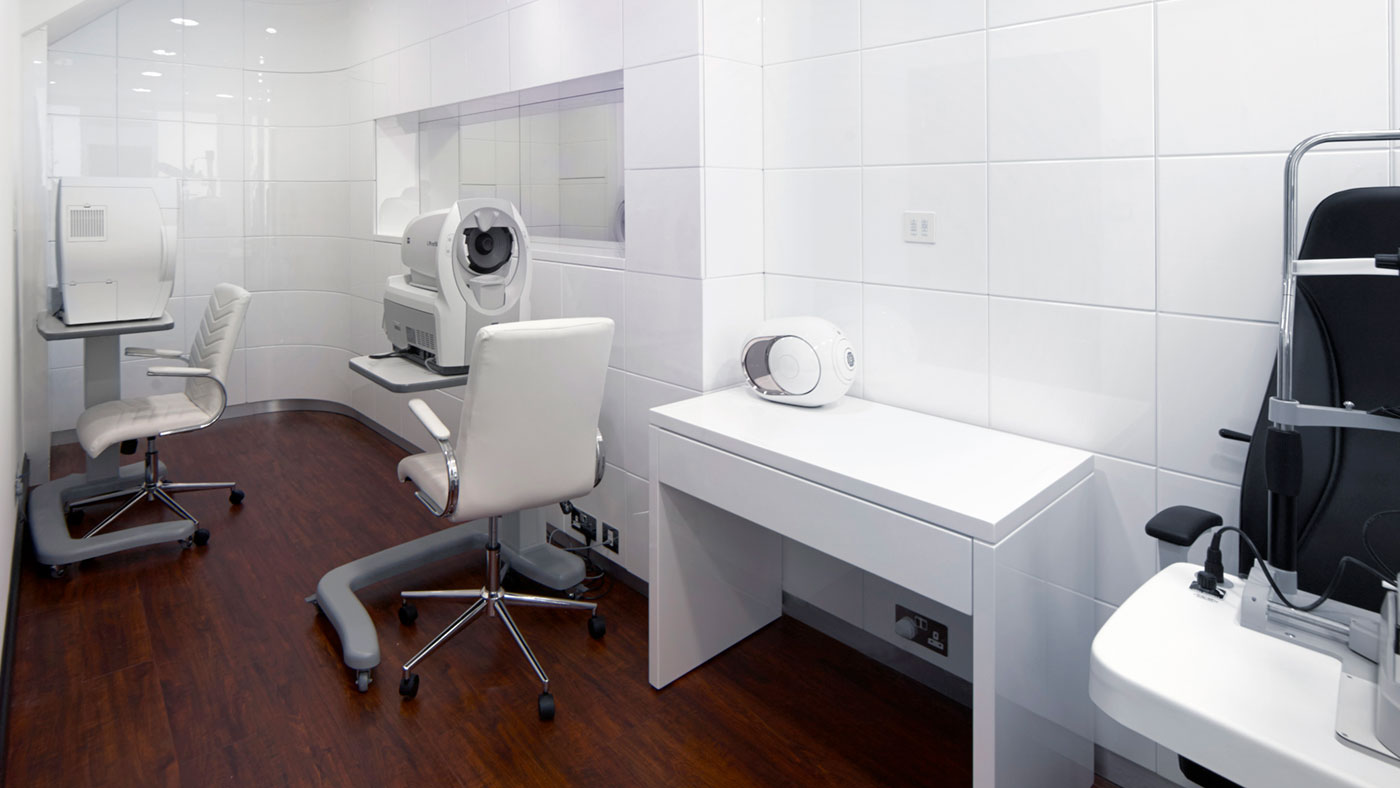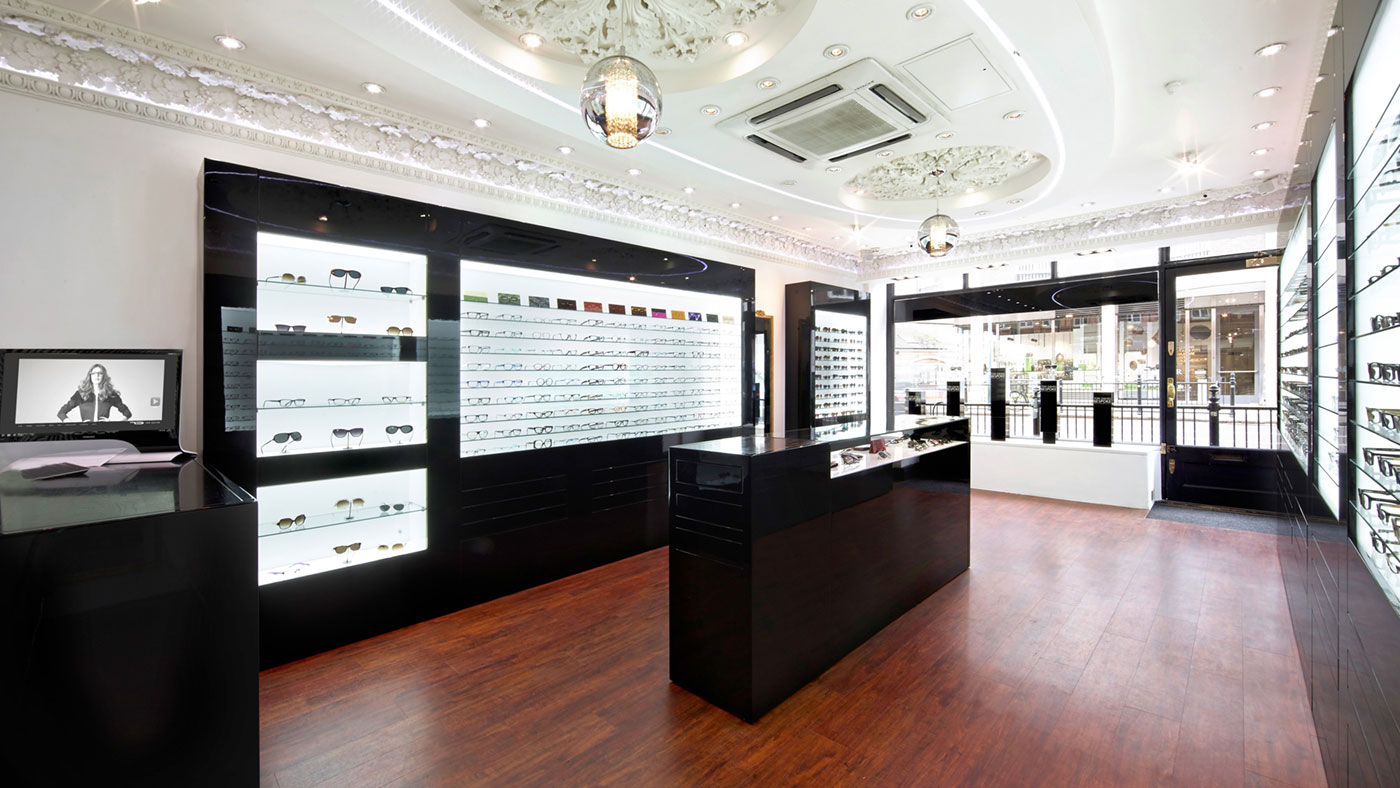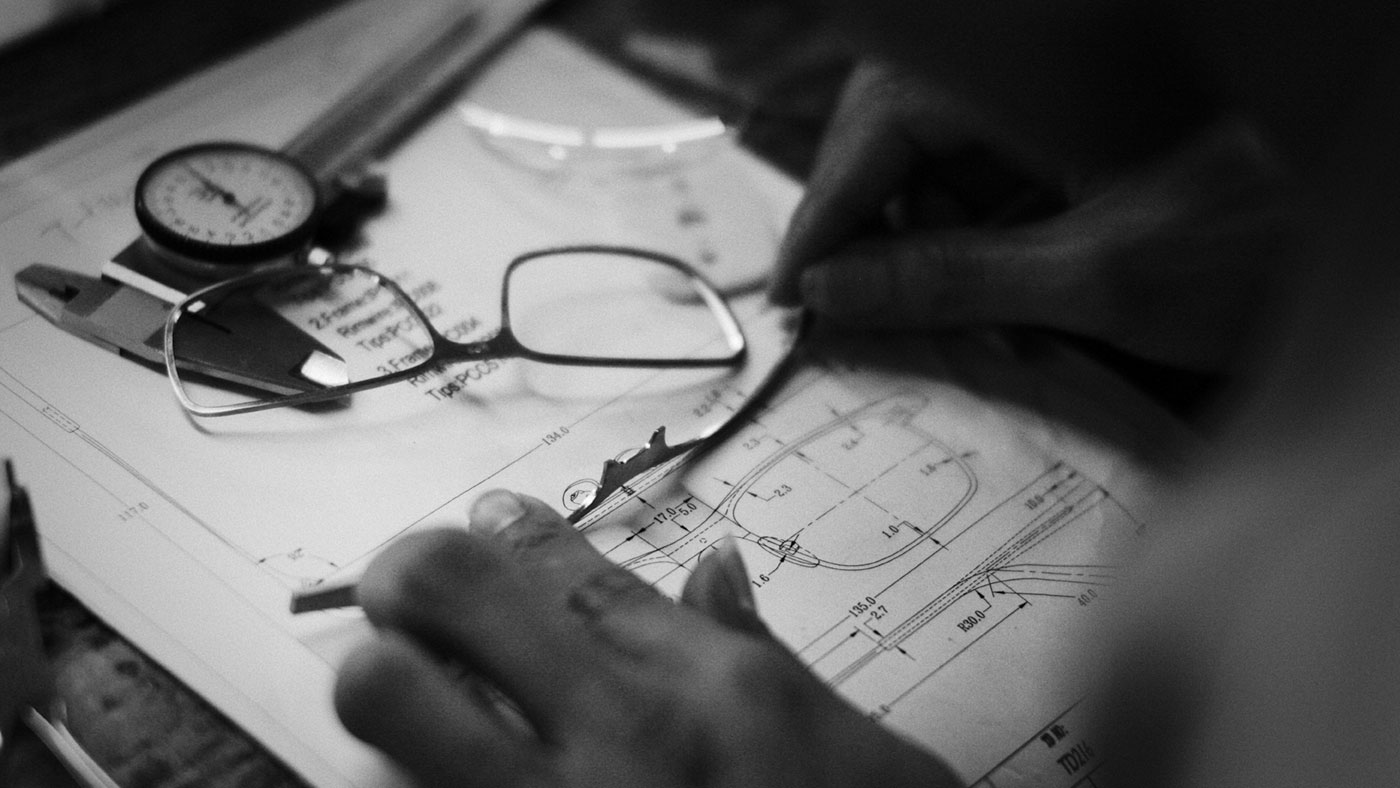Tom Davies: Man of vision
A beautiful frame is just the beginning says the eyewear designer to the stars and the rest is rather eye-opening

A free daily email with the biggest news stories of the day – and the best features from TheWeek.com
You are now subscribed
Your newsletter sign-up was successful

My approach to eyewear has always been to make the best glasses humanly possible. I use the highest-quality materials with the most meticulous craftsmanship to manufacture and finish frames individually for each customer.
When I opened my first Tom Davies Bespoke Opticians, I wanted to ensure the clinical side and the lenses matched the highest standards I hold for my bespoke frames, so I worked with Zeiss [manufacturers of eye test machinery] to set up the most advanced eye-health clinic I could.
Working with Zeiss enabled me not only to provide outstanding clinical care, but also to create bespoke lenses to match every person's lifestyle. While I can easily tell you what vision correction you need, I can also screen for diseases such as diabetic retinopathy, macular degeneration and glaucoma. In fact, my clinics are so advanced we get many referrals for screening from hospitals.
The Week
Escape your echo chamber. Get the facts behind the news, plus analysis from multiple perspectives.

Sign up for The Week's Free Newsletters
From our morning news briefing to a weekly Good News Newsletter, get the best of The Week delivered directly to your inbox.
From our morning news briefing to a weekly Good News Newsletter, get the best of The Week delivered directly to your inbox.

The Zeiss OCT is like an MRI scanner for the eye. We've helped so many people with this machine and frankly this should be standard equipment in every opticians. We can see problems coming years in the future, which are much easier to treat today.
Another machine we use, the I-Profiler II, analyses each eye to identify any defects, allowing us to surface each lens individually to optimise colour contrast and night vision.
What your brain thinks it can see and what you can actually see are sometimes different. The prescriptions we create are not just a correction for your eyes, but bespoke to who you are, what you do for a living and what you will need the glasses for.
For example, you might play a lot of golf or tennis. We would make a prescription and bespoke lenses for this. You might drive a lot or work in front of multiple screens all day. Perhaps you don't like driving at night – did you know that your vision can be different in the dark?
A free daily email with the biggest news stories of the day – and the best features from TheWeek.com

Using all our clinical data and spending time with you, we can then use Zeiss machines to create a completely bespoke lens that has 50,000 points of reference. The results are often a real surprise to my customers when they are looking through their new glasses.
I've been making bespoke frames for 15 years now and the formula is simple – you start with a frame you like from my collection, then we tailor the fit and small details to your features.
The process starts with a friendly chat to define a design brief. The second stage is a very quick pre-fit, where we try on a selection of styles in the shop to see what shapes work and what shapes don't. Some people show me their old frames, but I prefer starting with a blank canvas to see if there's anything you've not considered before.
There are two main features I look at – the shape of the customer's hairline and the shape of the browline. These are the main structures of the face that define you. I have to pick eyewear that works with these natural frames to make you feel and look fantastic when you have your glasses on. I want your glasses to be a treasured accessory, not something you begrudge having to wear.
The last thing we discuss is colour, which is very subjective, but the colour of your eyes is the most important aspect to consider here. For example, for men with blue eyes who usually hate to wear any colour in their frames, a dark navy-blue frame will be a fantastic choice.
We take a series of measurements, but the most important is the nose fit; glasses slipping down the nose or leaving marks or pain behind the ears is not acceptable, yet it happens to most people every day.

I do find it odd that even style-conscious people often wear the same pair of glasses all year round, no matter what else they are wearing. So I also offer a wardrobe service, where we help the customer select five different frames to mix and match with different outfits and occasions. I usually suggest choosing a business frame for work, a more quirky frame for going out, a sports frame that can be worn for running, skiing or cycling, a casual pair and one or two pairs of sunglasses.
We use a range of materials to make the frames, including pure titanium and Japanese cotton acetate (which looks like plastic, but is 80 per cent cotton and very strong), and this involves a lot of experimentation. Even though it's difficult to work with, natural buffalo horn is one of our most popular materials, as it's hypoallergenic and 30 per cent lighter than acetate. We source our horn from sustainably farmed animals in India, the UK and Africa. They also supply locals with milk and leather.
My factory is currently in Shenzhen, China, but I'm in the process of moving it here to London. Very few companies hand-make glasses in Britain and I'm so excited to be training a new generation of optical craftsmen.
Following a degree in Art and Design, TOM DAVIES embarked on an adventure to Asia to design glasses for a start-up company in Hong Kong before founding TD Tom Davies in 2001. There are four Tom Davies Bespoke Opticians in London, with a fifth due to open in Covent Garden in the summer; tdtomdavies.com
-
 The environmental cost of GLP-1s
The environmental cost of GLP-1sThe explainer Producing the drugs is a dirty process
-
 Nuuk becomes ground zero for Greenland’s diplomatic straits
Nuuk becomes ground zero for Greenland’s diplomatic straitsIN THE SPOTLIGHT A flurry of new consular activity in Nuuk shows how important Greenland has become to Europeans’ anxiety about American imperialism
-
 ‘This is something that happens all too often’
‘This is something that happens all too often’Instant Opinion Opinion, comment and editorials of the day